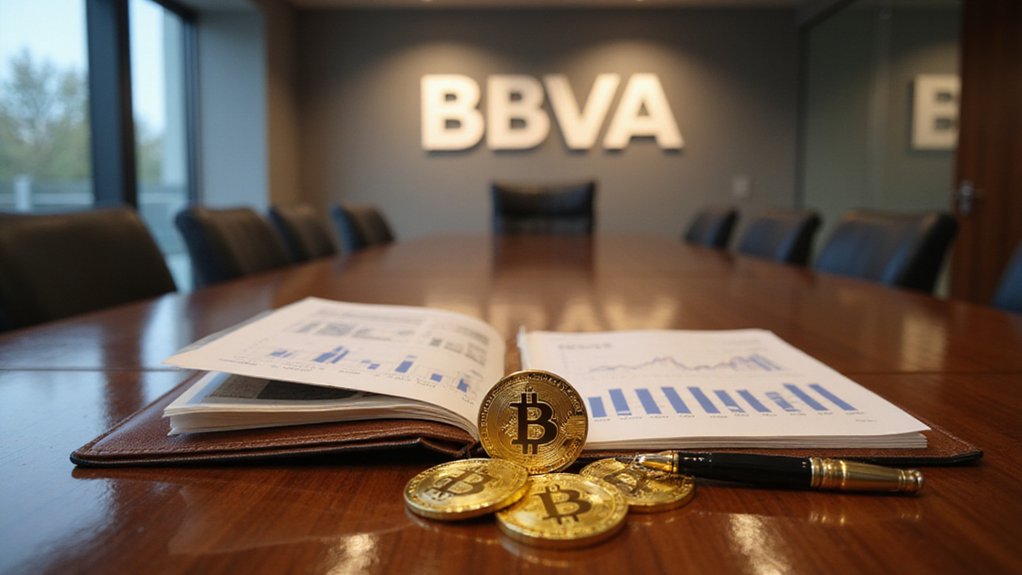While 95% of European Union banks steadfastly avoid cryptocurrency like a particularly virulent strain of regulatory plague, Spain’s BBVA has decided to swim against this cautious tide by advising its private wealth clients to allocate between 3% and 7% of their portfolios to digital assets—a move that positions the institution as either a visionary pioneer or a remarkably well-capitalized gambler, depending on one’s perspective regarding the long-term viability of Bitcoin and Ether as legitimate asset classes.
The bank’s allocation recommendations operate on a risk-adjusted sliding scale, with conservative clients receiving the lower 3% guidance while those with higher risk tolerance earn the privilege of potentially losing 7% of their wealth to crypto’s notorious volatility.
This measured approach suggests BBVA recognizes that while a small crypto allocation might enhance portfolio performance, there’s wisdom in treating digital assets like expensive seasoning—a little goes a long way, and too much ruins the entire dish.
BBVA treats cryptocurrency like culinary spice—potent in small doses, potentially disastrous when applied with excessive enthusiasm or reckless abandon.
BBVA’s journey into cryptocurrency began in 2021 with trade execution services, evolving into full advisory capabilities by late 2024 after securing regulatory approval from Spanish authorities.
The bank plans to integrate crypto trading directly into its mobile application, allowing clients to buy, sell, and manage digital assets with the same casual ease typically reserved for checking account balances or transferring funds to cover impulsive purchases.
Currently focusing exclusively on Bitcoin and Ether—the equivalent of cryptocurrency’s blue-chip stocks, if such a comparison doesn’t constitute an oxymoron—BBVA intends to expand its digital asset offerings throughout the year. Beyond these established cryptocurrencies, other digital assets like Solana and XRP continue to gain traction for their technological innovations in transaction speeds and payment solutions.
This strategy directly contradicts the European Central Bank’s cautionary stance on crypto risks, though the bank maintains that balanced portfolios benefit from modest cryptocurrency exposure.
The move reflects growing institutional interest in digital assets despite persistent regulatory warnings. JPMorgan Chase has similarly embraced the trend by offering clients Bitcoin access through third-party providers, though the American banking giant stops short of providing custody services itself.
BBVA’s private wealth division specifically targets affluent clients seeking portfolio diversification, arguing that even minimal allocations can enhance performance without excessive risk exposure.
Whether this represents shrewd investment strategy or elaborate financial theater remains to be determined, though early client reception has reportedly been positive—a development that either validates BBVA’s approach or confirms that wealthy individuals possess an inexhaustible appetite for novel investment opportunities.









